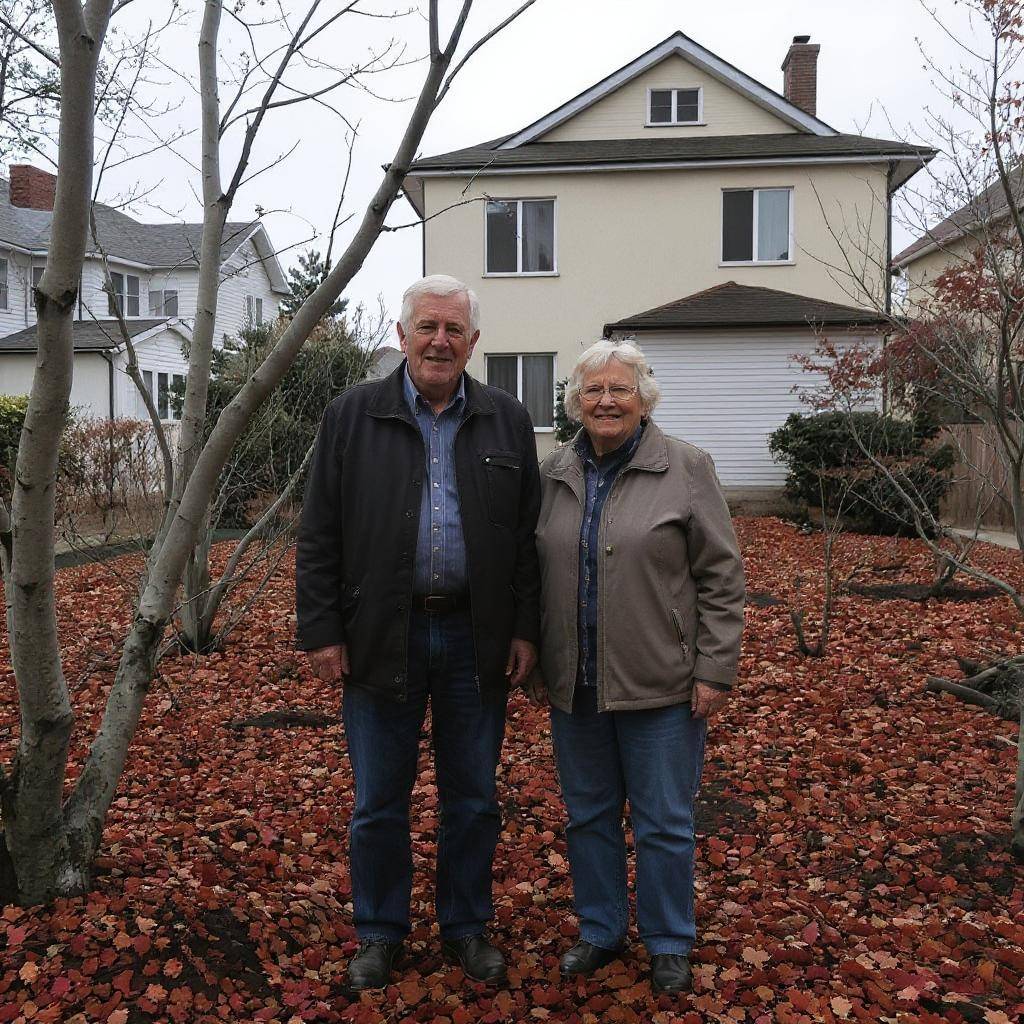For years, the patch of land behind our house sat untouched. It was large enough to build on, perfect for a house and a small garden, but with full-time jobs and young kids, my husband and I never had the time or energy to do anything with it. Then one day, our elderly neighbors, Mr. and Mrs. Keller, approached us with an idea.

They had been living in the neighborhood longer than anyone—kind, gray-haired, and always smiling. Mr. Keller leaned over the fence and asked if we’d be willing to let them use the land to grow fruit trees and vegetables. “It’s a shame to waste good soil,” he said. They promised to handle all the planting, watering, and maintenance, and in return, they’d share the produce with us. It sounded like a win-win. We agreed without hesitation. Over time, that dry lot transformed into a lush, productive garden. Lemon trees swayed in the breeze, and rows of lettuce, tomatoes, and peppers thrived under their care. Every couple of weeks, Mrs. Keller would come by with a cheerful smile and a basket of fresh produce.
“From your backyard to your table,” she would say with a laugh. For over three years, we never questioned the arrangement—until everything changed. My husband’s younger brother, Daniel, had recently gotten married, and he and his new wife were moving back to the city. Naturally, the land behind our house seemed like the ideal place to build them a modest home. One morning, we approached the Kellers gently to let them know. “Mr. Keller,” I began carefully, “Dan and his wife are coming back, and we need to reclaim the land.” The smile vanished from his face. “You can’t just take it back,” he snapped. I was stunned. “Excuse me?” I asked. “We planted trees,” he continued.
“Mature trees take years. We’ve put thousands into seedlings, fertilizers, and labor. You expect us to walk away with nothing?” He left and returned with a handwritten list of expenses. “Here,” he said, handing me the paper. “Itemized costs. You’ll need to pay us $2,100 to vacate before the next harvest.” My hands trembled as I looked over the list. “But we never charged you rent,” I replied. “You knew the land belonged to us. The agreement was verbal.” “We created something valuable,” he said. “You want it for free?” Suddenly, the neighbors we once trusted felt like strangers. Mrs. Keller added, “If you force us to leave now, you’ll destroy years of progress and ruin fruit that isn’t ready.
Pay us what we ask, or we won’t go peacefully.” Word spread fast. Neighbors whispered and gave us sympathetic glances—or judgmental ones. That night, my husband and I sat at the kitchen table staring at the list. The bold number at the bottom—$2,146—seemed to burn into our minds. “If we pay them, we can avoid drama and move on,” my husband said quietly. “But why should we?” I pushed back. “They volunteered. We didn’t charge them to use it. This was their choice.” He sighed. “True, but what if they make a scene? What if this drags out for months and turns people against us?” “Then what lesson are we teaching our kids?” I whispered. “That it’s okay to let guilt and pressure control you?”
We sat in silence. Giving them money would have been easy—but it didn’t feel right. It felt like being taken advantage of. This wasn’t about vegetables anymore. It was about principle. “What message do we send if we pay?” I asked. “That manipulation works?” My husband said nothing. He just folded the list slowly and looked at me with tired eyes. “We’re not looking for a fight,” he said, “but we won’t raise our children to believe giving in when wronged is noble.” That was the moment we decided to stand firm. I contacted the Land Management Office the next day. Two weeks later, an officer showed up with legal documents. From our kitchen window, I watched as the Kellers were served notice.
The land was legally ours. No contracts, no paperwork—just a verbal agreement. They had no legal standing. The officer was clear: they had thirty days to vacate. If they wanted repayment, they’d need to go to civil court. They didn’t. Instead, they packed their tools, salvaged what crops they could, and left. The garden slowly withered. The silence that followed felt strange—no more cheerful visits or fresh produce. But what I mourned wasn’t the vegetables. It was the trust. The friendship. Doing what was right hurt—but letting others walk over us would’ve hurt even more. As Daniel began laying the first bricks of his new home, I stood at the edge of the empty plot and knew one thing for sure: standing up for yourself might cost you peace in the moment, but surrendering to manipulation costs you far more.





